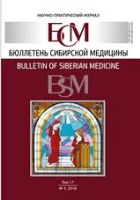
MEMORIAS DO INSTITUTO OSWALDO CRUZ
Scope & Guideline
Empowering Scholars with Open-Access Medical Discoveries.
Introduction
Aims and Scopes
- Infectious Disease Research:
The journal emphasizes studies related to various infectious diseases, including Chagas disease, leishmaniasis, malaria, and other tropical diseases, providing insights into their epidemiology, pathophysiology, and treatment. - Vector Biology and Control:
Research focusing on vectors of diseases such as mosquitoes, triatomines, and sandflies is a key area, addressing their biology, behavior, ecology, and control measures to mitigate disease transmission. - Molecular and Genomic Studies:
The journal promotes molecular biology and genomic research, including studies on the genetic diversity of pathogens and vectors, molecular diagnostics, and the development of vaccines and therapeutic agents. - Public Health and Policy Implications:
Public health aspects, including the impact of environmental changes, migration, and socio-economic factors on disease prevalence and control strategies, are crucial themes in the journal's scope. - Innovative Diagnostic Techniques:
The journal highlights advancements in diagnostic methods for infectious diseases, including serological tests and molecular techniques, aimed at improving disease detection and management.
Trending and Emerging
- Impact of Climate Change on Disease Dynamics:
Recent publications have increasingly addressed how climate change influences the distribution and transmission of vector-borne diseases, highlighting the need for adaptive strategies in public health. - Innovative Therapeutic Strategies:
There is a growing focus on novel therapeutic approaches, including the development of new drug candidates, repositioning existing drugs, and exploring natural compounds as treatments for infectious diseases. - Long COVID and Post-Viral Syndromes:
Emerging research into the long-term effects of COVID-19 and other viral infections is becoming prominent, reflecting a broader understanding of infectious diseases beyond acute presentations. - Integration of Genomics in Disease Management:
The application of genomic tools for understanding pathogen diversity, resistance mechanisms, and vaccine development is increasingly prevalent, indicating a shift towards precision medicine in infectious disease research. - Interdisciplinary Approaches to Disease Control:
There is a trend towards interdisciplinary research that combines insights from ecology, epidemiology, and social sciences to address the complexities of disease transmission and control.
Declining or Waning
- Traditional Epidemiological Studies:
There is a noticeable decrease in traditional epidemiological studies that do not incorporate molecular or genetic analyses, as the field shifts towards more integrated approaches that combine epidemiology with molecular biology. - Focus on Non-Tropical Diseases:
Research related to non-tropical infectious diseases has become less frequent, as the journal's focus remains primarily on tropical and endemic diseases relevant to the Latin American context. - Historical Perspectives on Diseases:
While historical analyses of diseases like Chagas and leishmaniasis were once prevalent, recent publications have shifted towards contemporary research and innovations, leaving fewer articles exploring historical contexts. - Studies on Drug Resistance in Non-Vector Diseases:
The frequency of studies addressing drug resistance in diseases not primarily transmitted by vectors has diminished, possibly due to the growing concern over vector-borne diseases.
Similar Journals

Parasites & Vectors
Pioneering insights into the world of parasites and vectors.Parasites & Vectors is a leading open access journal dedicated to the dissemination of high-quality research on the vectors of infectious diseases and their parasitic agents. Published by BMC in the United Kingdom, this journal has been at the forefront of its field since its establishment in 2008, contributing to our understanding of vector-borne pathogens through its rigorous peer-reviewed articles. With a notable impact factor and categorized in the top quartile (Q1) in both Infectious Diseases and Parasitology, it is an essential resource for researchers, professionals, and students worldwide. The journal ranks impressively within various categories, holding a position of 7th out of 194 in Veterinary General Veterinary and 12th out of 79 in Immunology and Microbiology Parasitology, indicating its significant contribution to the sciences. Accessible to all, Parasites & Vectors supports the global pursuit of knowledge in epidemiology and disease control, making it an indispensable platform for sharing innovative findings and fostering collaboration within the scientific community.

MALARIA JOURNAL
Empowering global health with innovative malaria insights.MALARIA JOURNAL, published by BMC, is a leading open-access journal dedicated to the advancement of research in the field of malaria and related infectious diseases. Since its inception in 2002, this journal has established itself as a significant resource for the global scientific community, covering a wide range of topics, including epidemiology, pathology, treatment, and prevention strategies for malaria. With an impressive Q1 ranking in both Infectious Diseases and Parasitology categories as of 2023, the journal is committed to fostering high-quality research that contributes to the understanding and control of malaria. As an open-access platform, it ensures that vital findings and insights are freely accessible to researchers, practitioners, and students worldwide, facilitating collaboration and informing public health strategies. The journal's relevance is underscored by its competitive Scopus rankings, which further highlight its impact in the realms of Immunology, Microbiology, and Medicine. Join the community of scholars and practitioners dedicated to combating one of the world's most pressing health challenges.

Tropical Diseases Travel Medicine and Vaccines
Connecting research and practice for a healthier tomorrow.Tropical Diseases Travel Medicine and Vaccines, published by SPRINGERNATURE, stands at the forefront of research in the fields of infectious diseases and public health, with an impressive impact factor that signifies its relevance and influence. Since its inception in 2015, this peer-reviewed journal has maintained an open access policy, ensuring that cutting-edge research on tropical diseases and travel medicine is readily available to researchers, professionals, and students worldwide. The journal currently ranks in the Q2 Quartile for both Infectious Diseases and Public Health, Environmental and Occupational Health, reflecting its substantial contribution to these critical areas of study. With a strong Scopus rank of #176 in Public Health and #138 in Infectious Diseases, it serves as a vital platform for innovative studies that advance understanding and response strategies related to tropical diseases. For its vast audience, Tropical Diseases Travel Medicine and Vaccines not only acts as a bridge connecting researchers with practical applications but also nurtures academic discourse essential for future advancements in global health.

Asian Biomedicine
Advancing Biomedical Research Across AsiaAsian Biomedicine, published by WALTER DE GRUYTER GMBH, serves as a crucial platform for disseminating pioneering research in the field of biomedical sciences. Established in 2008, this journal has carved its niche in the landscape of academic publishing, concentrating on a diverse array of topics within biochemistry, genetics, and molecular biology, as well as medicine. Though it currently holds a Q4 ranking in its category, it is dedicated to fostering academic discussions and advancing knowledge among researchers, professionals, and students alike. While the journal features a variety of access options, it is committed to ensuring that its content remains relevant and impactful, with an emphasis on the latest developments and research trends. The editorial board encourages submissions that address pressing biomedical issues, thus empowering contributors to engage meaningfully with the scientific community. With a broad international scope and a focus on quality, Asian Biomedicine is poised to play an increasingly important role in the advancement of biomedical research in Asia and beyond.

REVISTA DO INSTITUTO DE MEDICINA TROPICAL DE SAO PAULO
Championing Open Access in Tropical Medicine ResearchREVISTA DO INSTITUTO DE MEDICINA TROPICAL DE SAO PAULO is a prestigious open-access journal that has been publishing significant research in the field of tropical medicine since its inception in 1961. Produced by the Instituto de Medicina Tropical de São Paulo, the journal boasts a commendable Q3 ranking in both the categories of Infectious Diseases and Medicine (miscellaneous), as per the latest 2023 metrics. With an ISSN of 0036-4665 and E-ISSN of 1678-9946, it serves as a prominent platform for scholars and professionals to disseminate their findings and insights on pressing health issues prevalent in tropical regions, particularly those relevant to Brazil and beyond. This journal is essential for researchers and practitioners who seek to advance their understanding and apply innovative solutions in tropical medicine, thus addressing the distinct challenges posed by infectious diseases in diverse populations. The journal is accessible through various open access platforms, ensuring that critical research is available to a global audience, fostering knowledge sharing and collaboration.

JOURNAL OF VECTOR ECOLOGY
Transforming Knowledge into Action for Vector ControlJOURNAL OF VECTOR ECOLOGY, published by SOC VECTOR ECOLOGY, serves as a pivotal platform for the dissemination of research in the interdisciplinary fields of ecology, evolution, behavior, and systematics. Established in 1996 and operating from the United States, this esteemed journal boasts an impressive Q2 ranking in Ecology as of 2023, showcasing its significant contribution to the scientific understanding of vector ecology and its implications on public health and environmental management. The journal is indexed in Scopus, ranking #341 out of 721 in Agricultural and Biological Sciences focusing on Ecology, Evolution, Behavior and Systematics and #222 out of 461 in Environmental Science, highlighting its relevance and impact within these domains. Although it does not currently offer open access options, the JOURNAL OF VECTOR ECOLOGY remains committed to advancing knowledge and fostering collaboration among researchers, professionals, and students dedicated to vector analysis and control strategies.

ACTA PARASITOLOGICA
Exploring the Intricacies of Parasitic LifeACTA PARASITOLOGICA, published by SPRINGER INT PUBL AG, stands as a pivotal journal within the field of Parasitology, boasting an ISSN of 1230-2821 and an E-ISSN of 1896-1851. Based in Germany, it has been providing valuable insights and research contributions since its inception, with publishing years converging from 1992 to 1994 and consistently from 1996 to 2024. The journal is recognized in the 2023 Category Quartiles as Q3 in Parasitology, indicating its significant impact and growing influence in the discipline, reflected in its Rank #43/79 in the Scopus Ranks for Immunology and Microbiology (Parasitology). Although not currently available in an Open Access format, ACTA PARASITOLOGICA remains a critical resource for researchers, professionals, and students alike, serving as a platform for the latest developments, methodologies, and discoveries in parasitic research. Its ongoing commitment to advancing the understanding of parasitic diseases and their impact on health and ecosystems underscores its importance in both academia and public health.

Revista da Sociedade Brasileira de Medicina Tropical
Championing open access to vital health research.Revista da Sociedade Brasileira de Medicina Tropical is a distinguished open-access journal published by the Sociedade Brasileira de Medicina Tropical, focusing on the critical fields of Infectious Diseases, Microbiology, and Parasitology. Since its inception in 1972, this journal has committed to disseminating impactful research that addresses pressing global health challenges, particularly in tropical and infectious diseases prevalent in Brazil and beyond. With a robust publication history, it has been recognized as a Q3 journal in esteemed categories, reflecting its valuable contributions to scientific literature and its ranking in various Scopus categories, including a notable position in Parasitology. Researchers, professionals, and students are encouraged to engage with its rich repository of research, which has been freely accessible since 1997, fostering a wide-reaching impact on public health strategy and scientific innovation.

JOURNAL OF VECTOR BORNE DISEASES
Fostering collaboration to tackle vector-borne health threats.JOURNAL OF VECTOR BORNE DISEASES, published by Wolters Kluwer Medknow Publications, is an esteemed peer-reviewed journal dedicated to advancing the understanding of vector-borne diseases, a significant concern in global health. Established in 2003, this open-access journal has fostered a rich repository of research, spanning clinical studies, epidemiology, and control strategies related to diseases transmitted by vectors like mosquitoes and ticks. With its impact continuing to grow, as evident from its Q3 quartile rankings in Infectious Diseases and Medicine (miscellaneous) categories in 2023, the journal provides a critical platform for researchers and healthcare professionals to disseminate findings that inform policy and practice. With the aim of highlighting contemporary issues and innovations in the field, it is vital for ongoing discussions and advancements in vector-borne disease management. Evaluation metrics from Scopus, although currently positioned in the lower percentiles, underscore the journal's importance as an emerging source of scholarly information in parasitology and immunology. By adhering to its open-access model since 2012, the journal ensures that its valuable content is readily accessible, facilitating widespread knowledge transfer and collaboration among scholars and practitioners alike.

Byulleten Sibirskoy Meditsiny
Fostering Knowledge Exchange in the Heart of SiberiaByulleten Sibirskoy Meditsiny, published by the Siberian State Medical University, is a pivotal open-access journal in the field of Molecular Medicine, with its current edition indexed under the ISSN 1682-0363. Since its transition to open access in 2013, the journal aims to disseminate high-quality research and advancements in biomedical sciences, particularly focusing on molecular mechanisms and therapeutic interventions. Despite its relatively recent recognition in Molecular Medicine, where it ranks in the 6th percentile, the journal is dedicated to fostering knowledge exchange and collaboration among researchers, professionals, and students alike. With a modest impact factor and quarterly publication, Byulleten Sibirskoy Meditsiny is positioned to serve as a valuable resource for those engaged in the intricate realms of molecular biology, biochemistry, and general medicine, contributing to the broader scientific discourse in the Russian Federation and beyond.